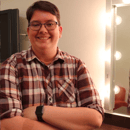This article is based on the author’s experience only, this is not what it is for everyone who is in this situation.
When I graduated high school in 2012, I was in the top 30% of my class and had a lot to show for myself. I thought I knew what I was getting myself into and thought I would get a job and a degree like everyone else. Although that did happen for a short amount of time, I found it difficult to find a job with little workplace experience. On top of that, I have a learning disability that causes me to need a little more time on tasks. With most of the jobs being in the food or retail industries, and after not getting hired even after multiple interviews, I had to do what I never wanted to do: I surrendered my pride and applied for government benefits at the age of 21. Little did I know, this was not an easy process.
Growing up, I had always worked hard, and that has never changed. I knew despite the challenges that accompany being disabled, that I could be just like everyone else. I could play sports, attend regular classes, socialize with friends, and get stellar grades. I always aspired to be more than my label. It is my motivation to keep going on my hardest days. I didn’t know that being disabled would affect my ability to get a simple job, or even hold down a job for that matter. I’m as stubborn as they come and I refuse help, but I do enjoy helping others, which is strange and ironic. So, applying for social security disability benefits, mental wellness clinics, vocational rehabilitation, nutritional assistance, and state-funded insurance was not on my radar. I always thought I could do it, until I could not.
I had to go to countless appointments and evaluations. I encountered the same problem in every direction, “You don’t look disabled.” You can’t see a learning disability and mental illness, so I had to show them in the files of paperwork and my records that I did indeed have a disability. I had to tell my story and be vulnerable to people I didn’t even know. After all of my efforts, it took close to four years for everything to get approved. That was four years of networking that I had done and opportunities I had passed up because when you are going through this process and while you have benefits, you cannot work.
My pride was hurt because I saw my friends accepting opportunity after opportunity while I was also offered opportunities, but had to turn them down. I was getting offered the jobs that would have helped me when I couldn’t accept them. Frustration was an emotion I constantly felt during this time.
I am a full-time student and I don’t work, but being on government benefits looks like a glamorous and easy life. Little does anyone know it is far from glamorous. Working with the government presents many challenges. These case workers have more clients than they can handle. You have to fight to get them to provide the benefits that are in your forty pages of paperwork that have already been approved and are part of your treatment plan. Trying to get an appointment with a doctor at one of the government-funded clinics requires me to go through four different people and leave many, many voicemails just to see if I can get in. Not being able to get treatment for some acute conditions because they don’t line up with your chronic conditions is a struggle. I’ve had an injured back for three years that bothers me every single day that my doctor can’t order the proper treatment, so I would have to settle for a treatment that would bring me temporary relief. However, my medications get paid for with a small co-pay. So, I guess there’s a tradeoff to everything.
I do live on my own in my cozy studio apartment with my old cat I’ve had since childhood. Thankfully, I have a lot of generous friends and family and the majority of what I have now is hand-me-downs. The reality is, my entire monthly check mostly goes to my rent. It leaves just a few bucks here and there for the essentials. I have no complaints, my cat is happy, and I have a roof over my head with running water. That doesn’t mean that things are not hard at times, because they are, but this is far better than other people are doing right now. I express my gratitude every day for that. I also have nutritional benefits. It’s not much, but it provides food every month on a relatively clean diet and is something I am grateful for every day.
As luxurious as this all sounds, the process to maintain it is not one I wish on anyone. I change doctors and case workers so often based on how my plan varies. And I don’t know about you, but I love when I get a doctor whom I can trust, and I feel is treating me properly. Once again, another trade off to being on government benefits.
As a full-time student who lives independently, I am fortunate to get some scholarships and grants from Federal Student Aid, but they often don’t cover all of my expenses. As part of my forty pages of paperwork with vocational rehabilitation, they cover my other expenses to an extent. But like most government benefits, I have to prove myself “worthy” to continue receiving services. This means I have to pass all of my classes or I lose my chance to continue to go to school. I take pride in being a hard-working student, but that pressure is always on the back of my mind as my circumstances loom over me.
I know that this sounds like I’m complaining a lot and that often proposes the question, “Well, why don’t you just get a job like everyone else if you are so unhappy?” Disclaimer, it’s challenging, but I am not unhappy. I’m able to work towards my dream in school to have a sustainable career in something I truly love. I paid for school out of pocket for many semesters and struggled to keep up, like most students. But at some point, I had to look in the mirror and accept that I am different and I am challenged. That was the hardest pill for me to swallow. I wanted to tell this story to shine a light on what it is like to be on government benefits, because it’s not a walk in the park and it’s a taboo topic to talk about. So, I hope that the next time someone is questioning what it is like to be on government benefits that this answers their questions.


